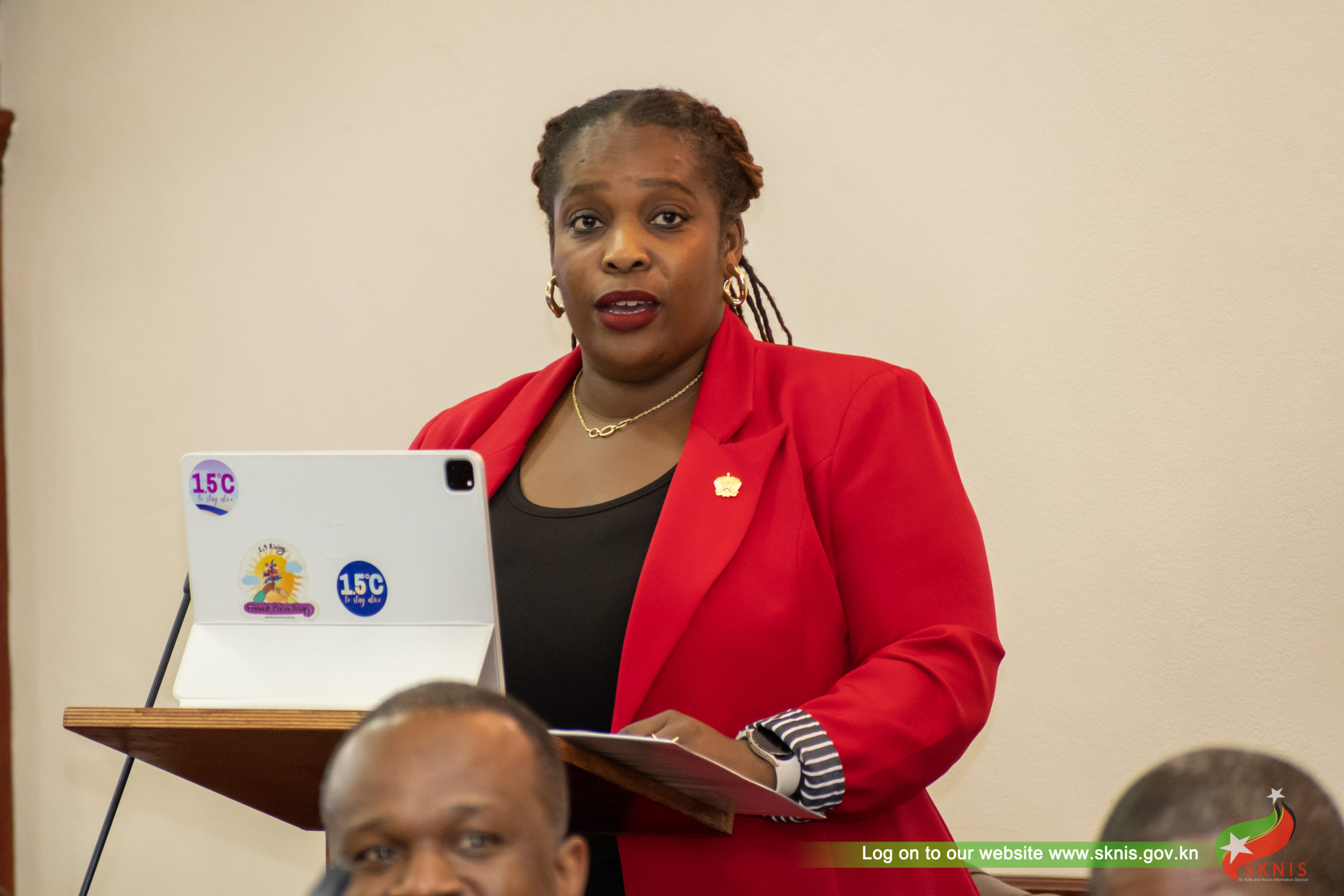Senator Clarke Reaffirms Governmental Commitment to Sustainable Development and Environmental Conservation
Senator Dr. Joyelle Clarke, Minister of Sustainable Development, Environment, Climate Action, and Constituency Empowerment, delivered a compelling address to the National Assembly during the 2025 Budget Debate, underscoring the government’s steadfast dedication to environmental sustainability and the vital role of conservation in safeguarding the future of St. Kitts and Nevis. Her presentation emphasized the significant strides made over the past two and a half years in transitioning from outdated environmental practices to innovative and sustainable approaches. This shift reflects a deep understanding of the interconnectedness between environmental health and the well-being of the nation’s citizens, recognizing that sustainability is not merely an abstract ideal but a fundamental requirement for the prosperity and health of the population.
Dr. Clarke outlined the government’s multi-pronged strategy for environmental stewardship, highlighting the collaborative efforts of various government departments, including the Ministry of Sustainable Development and the Solid Waste Management Corporation. These initiatives encompass a wide range of actions, from protecting natural resources to promoting sustainable living practices such as rural development and the construction of vertical communities. These measures are designed to enhance the nation’s resilience to the impacts of climate change, ensuring its long-term ability to thrive in a changing environment. This proactive approach demonstrates the government’s commitment to not only mitigating the effects of climate change but also to creating a more sustainable and resilient future for generations to come.
A central theme of Dr. Clarke’s address was the importance of community engagement and collaboration in building a sustainable future. She emphasized the need for a collective effort, urging citizens to actively participate in the transition towards a circular economy. This economic model prioritizes minimizing waste and reducing environmental impact through innovative production and consumption practices. By fostering a sense of shared responsibility, the government aims to empower individuals to contribute meaningfully to the nation’s sustainability goals. This collaborative approach underscores the belief that achieving true sustainability requires the active participation of all stakeholders.
The concept of a circular economy represents a paradigm shift in how we approach resource management. It moves away from the traditional linear model of “take, make, dispose” and embraces a cyclical approach where resources are reused, repurposed, and recycled, minimizing waste and maximizing value. This transition necessitates a comprehensive rethinking of production processes, consumption patterns, and waste management systems. By embracing circular economy principles, St. Kitts and Nevis aims to create a more sustainable and resilient economic model that minimizes its environmental footprint while maximizing resource efficiency.
Dr. Clarke stressed the critical need for waste reduction and underscored the government’s commitment to maintaining a clean and green environment for future generations. She highlighted the government’s efforts in waste management, emphasizing the importance of proper waste disposal and recycling practices. This dedication to environmental cleanliness reflects a broader commitment to creating a healthy and vibrant environment for all citizens. By prioritizing waste reduction and environmental cleanliness, the government is investing in the long-term well-being of its people and the preservation of the nation’s natural beauty.
In conclusion, Dr. Clarke’s address painted a clear picture of the government’s unwavering commitment to environmental sustainability. The initiatives outlined, from the protection of natural resources to the promotion of a circular economy, demonstrate a comprehensive and forward-thinking approach to environmental stewardship. The emphasis on community engagement and collaboration underscores the belief that achieving true sustainability requires a collective effort. By working together, the government and the citizens of St. Kitts and Nevis are striving to create a more sustainable, resilient, and prosperous future for all. This commitment to environmental sustainability is not merely a policy, but a fundamental value that guides the nation’s development and ensures its long-term well-being.
Share this content:












Post Comment